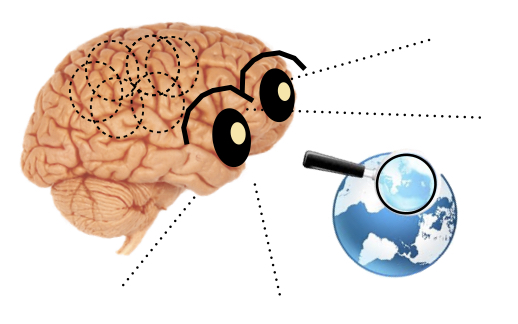
We are all looking for good things that can come from the current situation. Instead of flowing into utopian fantasies, I looked for practical positives that we have now.
1. Letting go of social comparison
I used to compare my Saturday night to what I thought other people were doing. When I turned fifty, I finally realized that we all choose the Saturday night we like, so comparing is a waste of energy. I wish I’d figured that out sooner. Today, everyone’s Saturday night is basically the same. Of course there are small differences, but focusing on them is a waste of your energy. Quarantine can help people learn to enjoy what they have instead of keeping score.
The mammal brain evolved to compare itself to others because that’s how a mammal knows when it’s safe to assert. Your mammal brain will keep making social comparisons whether you consciously want to or not. But you can manage that impulse more effectively when you know where it comes from. The new world of distancing gives you a chance to rewire your old social-comparison circuits. You can redirect the old sense of threat that your comparisons trigger.

2. The abundance of time
Many people have gone from a life of constant time pressure to a life of time on their hands. As much as you longed for free time in the past, the sudden shift may feel strangely uncomfortable. That’s because your brain only rewards you with dopamine when you take action to meet needs. Even if it’s just checking boxes on a things-to-do list, you need to move forward toward goals to keep up your dopamine. Without that happy chemical, your natural negativity grabs your attention more easily. Quarantine can teach us more sophisticated ways to manage our time and our dopamine. We can continually set doable short-run goals and enjoy dopamine when we meet them.
I am self-employed, and have been working more lately because so little fun stuff is available. I want to have fun, but my list of options is so short that I hate to use it up. I’m saving that precious last episode of my favorite series for a bad day. Yesterday I heard a rumor that the quarantine would end next week. Suddenly, I felt free to use up my precious trove of fun ideas, and rushed to schedule. The rumor was wrong, alas, so now I am back to thinking there will be plenty of time for fun stuff in the future. When this is all over, I want to preserve that feeling that there will always be plenty of time for fun stuff.
3. Quitting the blame game
We like to blame when we’re frustrated. Blame relieves threatened feelings by telling you “it’s not your fault.” Blame doesn’t relieve the long-run problem, but the short-run relief makes it tempting. The airwaves are full of people urging you to blame, so this thought loop is hard to avoid.
Blaming someone in power is especially tempting to social animals. Here is a well-known example: if a person is fired from their job before Christmas, everyone condemns the employer for ruining the person’s holiday. But if they are fired after Christmas, the employer is blamed for hiding information that the family needed to manage their money. It’s always the person in power’s fault, no matter what they do. Blame-mongers use fancy words to rationalize the non-verbal thought loop.
I learned to question the blame game when I was young due to unfortunate circumstances. My mother raged a lot, and often blamed me for her rages. On some level, I knew that wasn’t really true. As I got older, my mother’s rages often included the words, “it’s not what you did, it’s how you did it.” I tried everything to do it “right,” and finally realized that she raged no matter what. I saw how the verbal brain comes up with explanations for emotions that it doesn’t understand. Today, when I hear others point fingers of blame, I back off. Even if they have charts and polysyllabic terminology, I will not get sucked in. The pandemic reminds us that we do not have all the answers. The uncertainty of life is hard to accept, so the blame game is tempting. But people are building their acceptance of uncertainty instead of just rushing to blame.
4. Reading / writing is now a thing
Before the internet existed, television was the evil that everyone talked about. The downfall of civilization was predicted because people were stupefied into watching rather than reading. Today, people are reading, whether it’s social media, blog posts, or books. People are putting their thoughts into writing on a large scale. And even when we watch, it’s less passive because we have zillions of choices.
This is something to celebrate! If you don’t celebrate it, I will celebrate it myself. It gives me something to add to my fun list!
We are all building sophisticated cognitive skills. We’re building complex time management skills and social skills. We’re learning to build realistic expectations instead of expecting predictability and pointing fingers when life fails to fit models.
It’s hard to see positives because our brain is so good at zeroing in on negatives. You can learn more about this in my book, The Science of Positivity: Stop Negative Thought Patterns By Changing Your Brain Chemistry. Many more free resources on shifting from unhappy to happy chemicals are at the Inner Mammal Institute. A great place to start are my free presentations, Happy at Home and 7 reasons why we go negative, and how to go positive instead.

